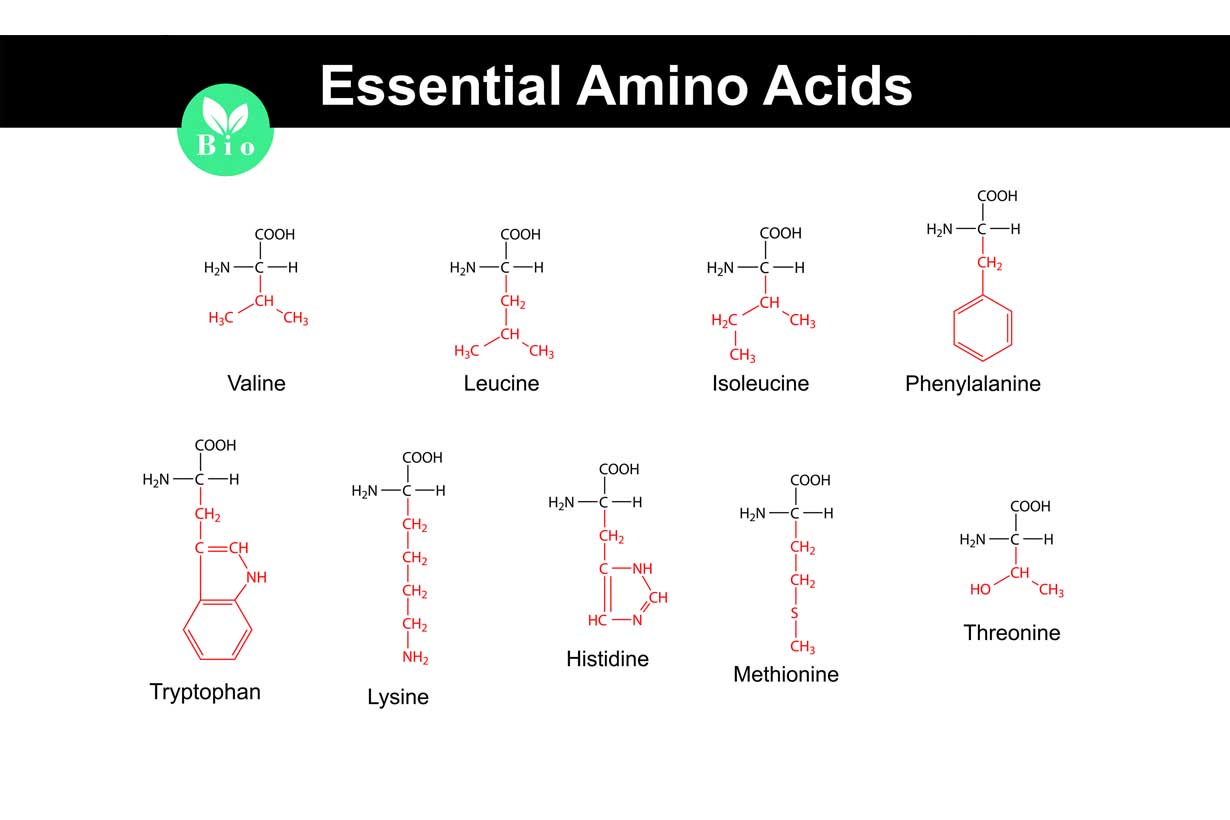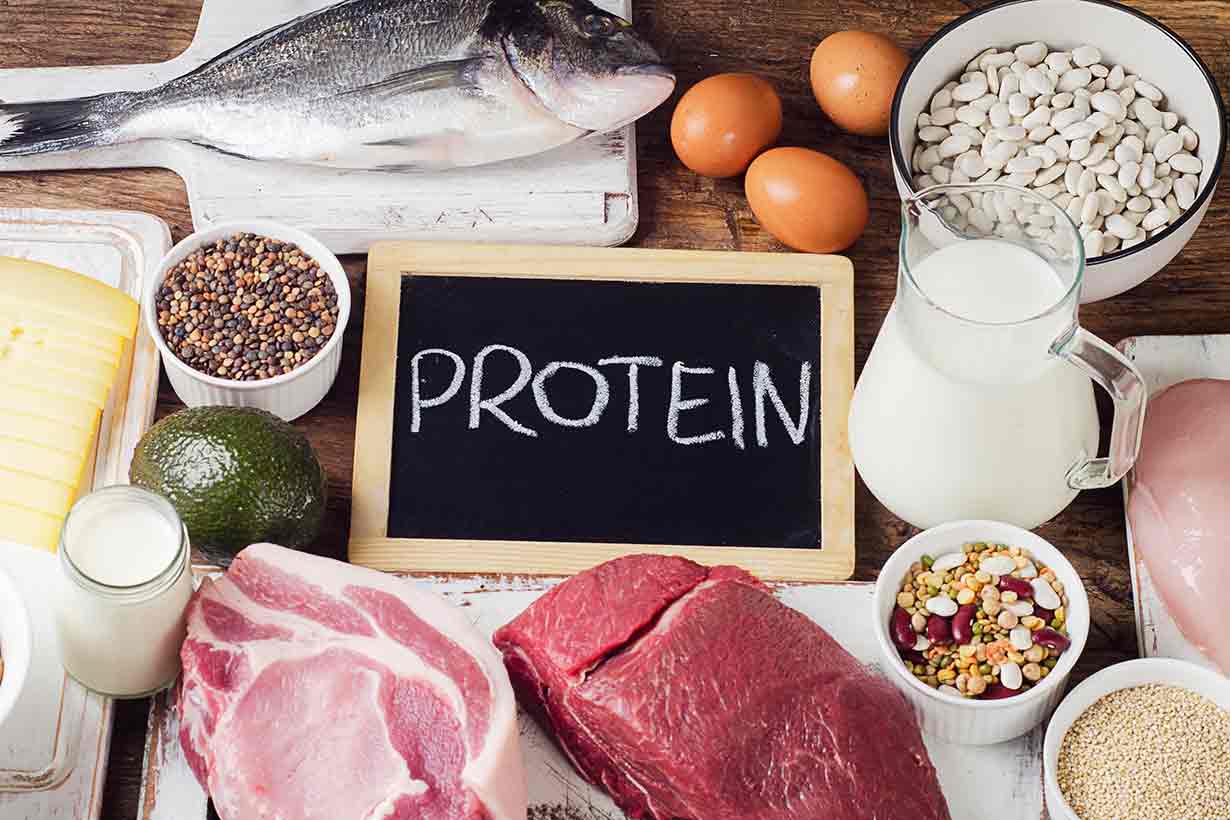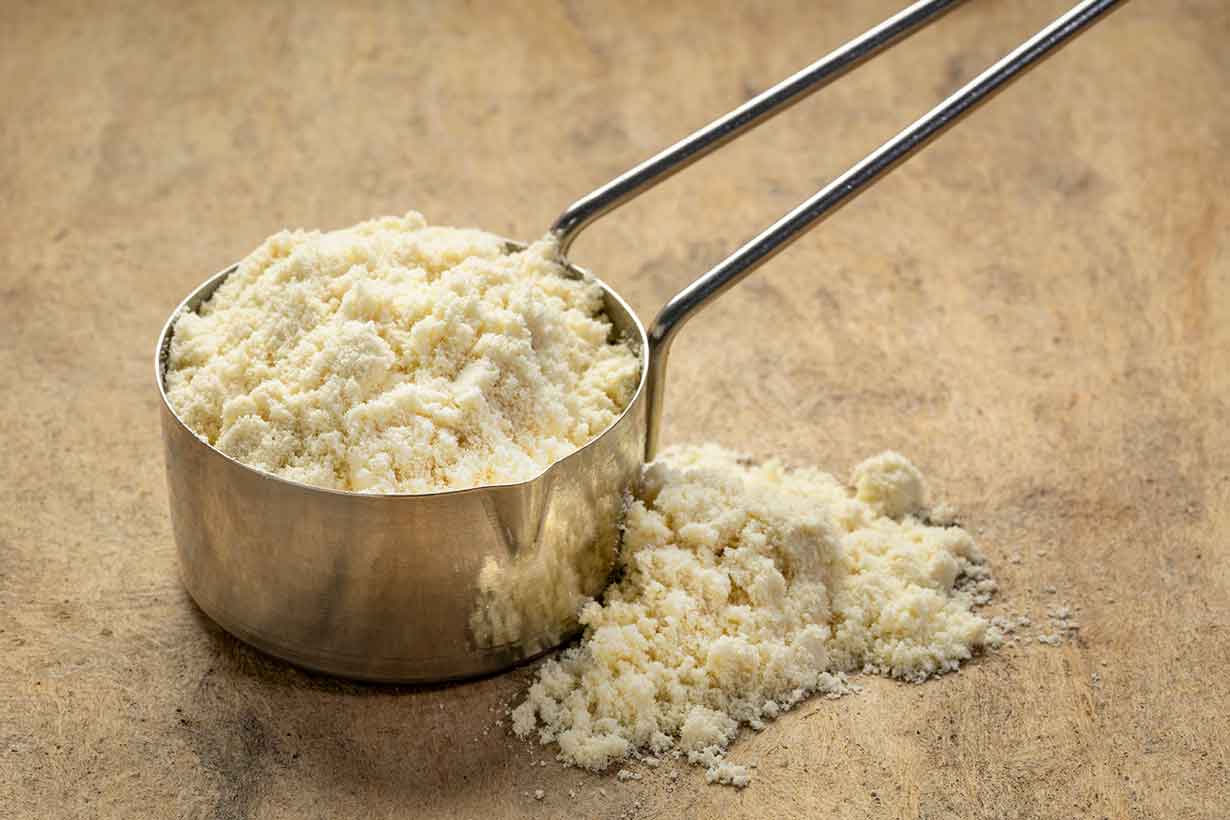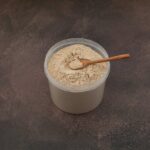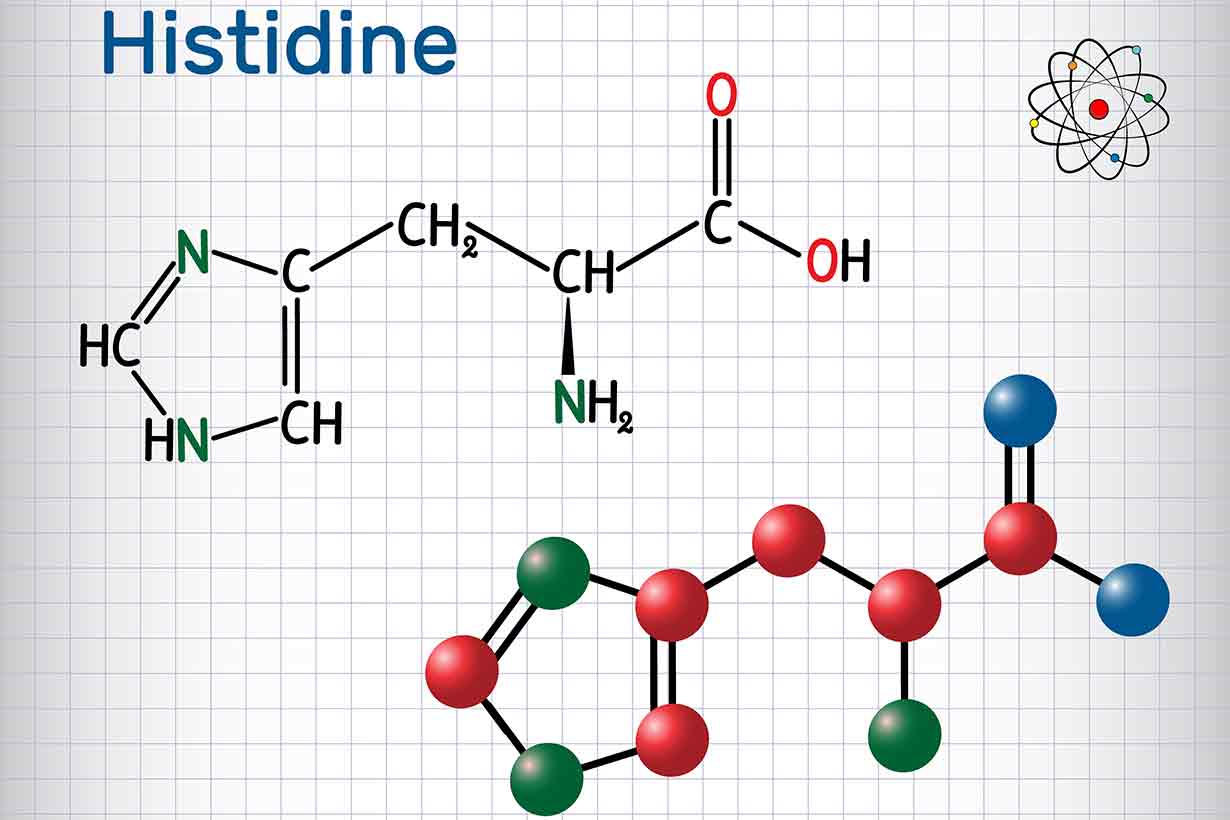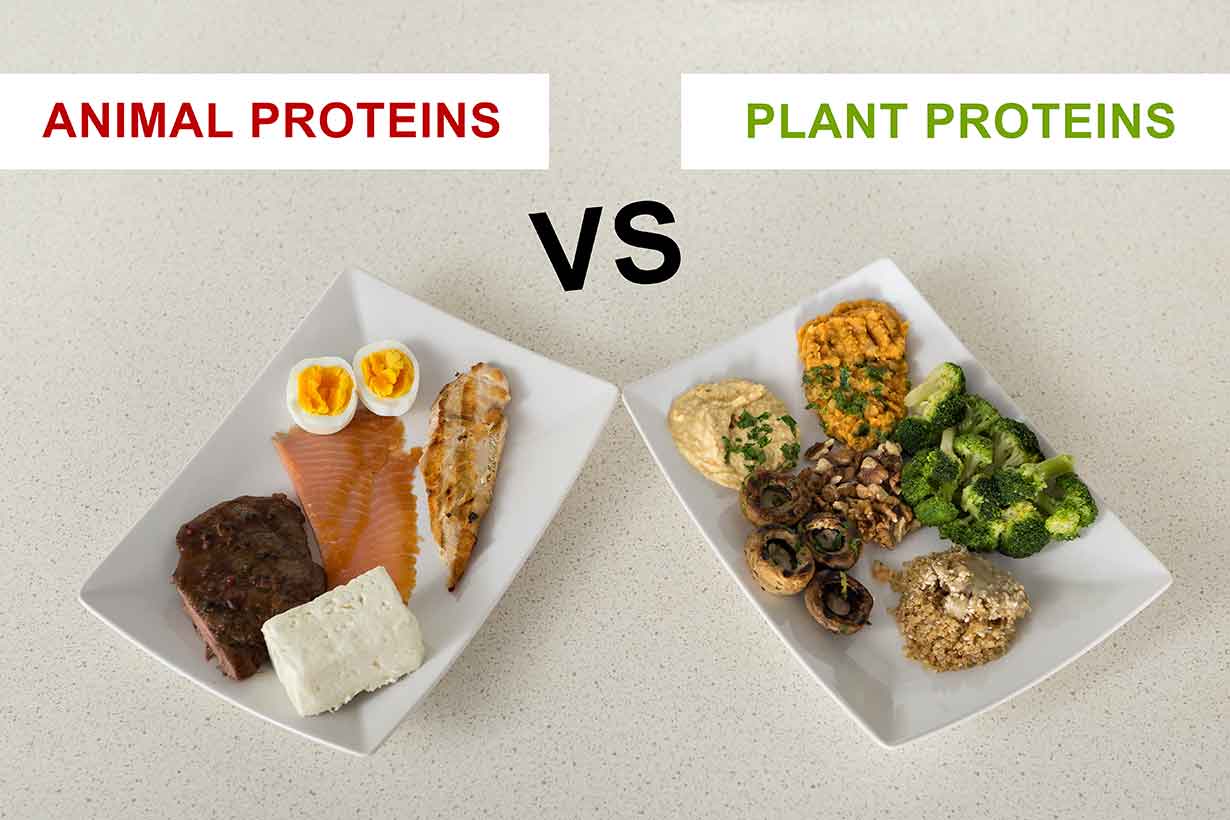Leucine is an amino acid that the human body cannot synthesize.
There are nine indispensable amino acids in total, but each individual amino acid has its own unique properties.
This article provides a guide to the benefits of leucine, how much we require, and the best dietary sources from where we can obtain it.
What Is Leucine?
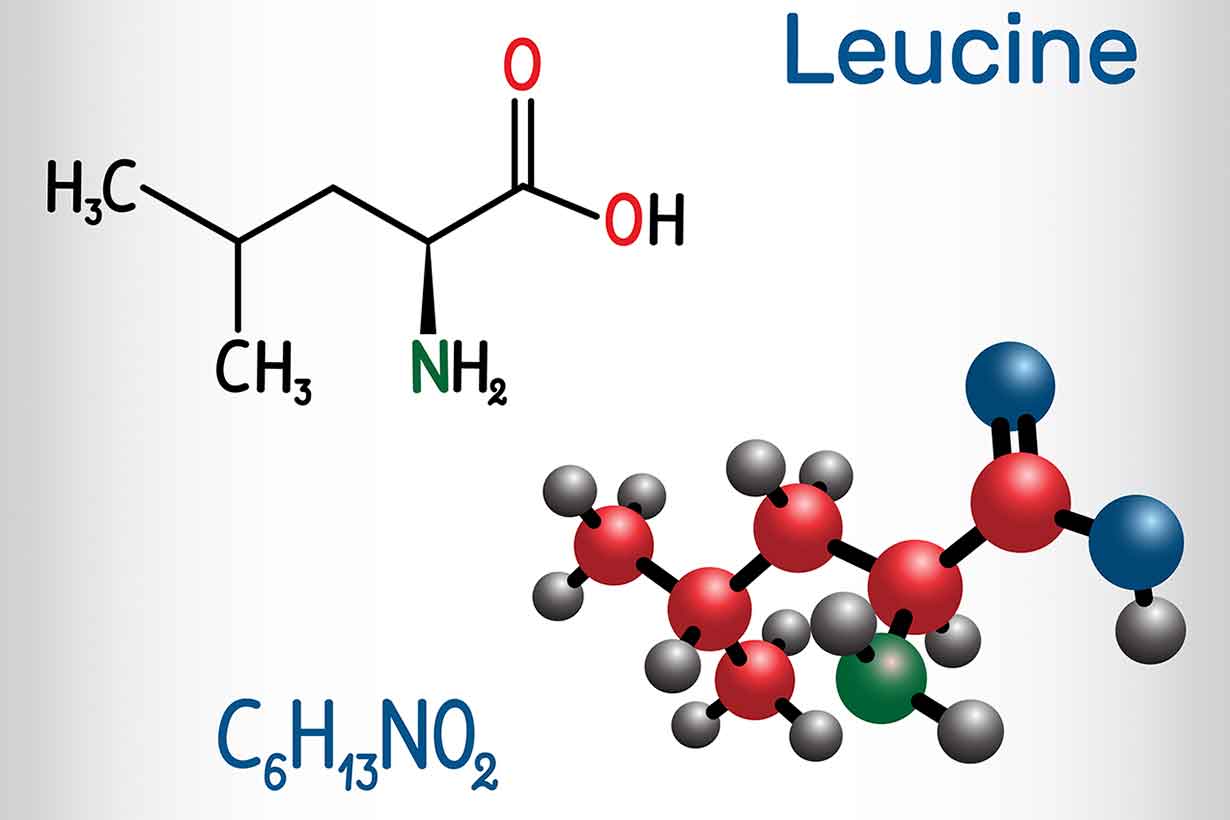
Leucine is an amino acid that we need to obtain from our diet, and for this reason, it is known as an ‘essential amino acid.’
The molecular structure and chemical formula for leucine are visible in the above image.
Leucine is one of the three branched-chain amino acids (BCAA) alongside isoleucine and valine. It is also one of the two ketogenic amino acids in the human body, with lysine being the other (1, 2).
Ketogenic amino acids are amino acids that degrade into a compound called acetyl-CoA, which is a precursor to the production of ketone bodies (3).
Notably, leucine plays a crucial role in muscle protein synthesis. Research also suggests that leucine may hold particular importance for maintaining lean body mass, especially in the elderly (4).
We will examine the full functions (and potential benefits) of leucine later in this article.
Leucine Requirements
Recommended dietary allowances have been set for leucine by the Food and Nutrition Board at the National Academies of Sciences, Engineering, and Medicine.
For adults over the age of 18, requirement intakes are set at 42 mg per kilogram of body weight per day (5).
To make this figure easier to understand, the following table shows the calculated recommended leucine intake by body weight.
| Body Weight | Leucine Requirements Per Day |
|---|---|
| 40 kg (88 lbs) | 1,680 mg |
| 50 kg (110 lbs) | 2,100 mg |
| 60 kg (132 lbs) | 2,520 mg |
| 70 kg (154 lbs) | 2,940 mg |
| 80 kg (176 lbs) | 3,360 mg |
| 90 kg (198 lbs) | 3,780 mg |
| 100 kg (220 lbs) | 4,200 mg |
| 110 kg (242 lbs) | 4,620 mg |
| 120 kg (264 lbs) | 5,040 mg |
| 130 kg (286 lbs) | 5,460 mg |
Functions and Benefits
All essential amino acids play vital roles within the human body, but leucine may also have some unique benefits of its own.
Leucine Stimulates Muscle Protein Synthesis
Firstly, research has demonstrated that leucine acts as a signal to stimulate muscle protein synthesis (6).
In other words, leucine signals that there there are amino acids present and encourages muscle building pathways, partly through the activation of mTOR (7).
Furthermore, several studies have demonstrated the benefits of leucine supplementation in newborn piglets of low birth weight. In these animal studies, leucine supplementation has led to significantly increased muscle protein synthesis (8, 9).
Human trials have also confirmed the beneficial effects of leucine on muscle protein synthesis. For example, a recent systematic review and meta-analysis of nine prior randomized controlled trials found that leucine has a significant impact on muscle protein synthesis in elderly participants.
To be specific, there was a statistically significant increase in the muscle protein fractional synthetic rate in participants supplementing with leucine compared to a control group (10).
Further studies, including randomized controlled trials, have demonstrated that leucine supplementation can enhance muscle protein synthesis following resistance exercise (11, 12).
May Help To Preserve Lean Muscle Mass When Dieting
Dieting can be a double-edged sword in that it is possible to lose body fat (which we want) and actual muscle (which we don’t want) at the same time.
For this reason, optimal weight loss methods should emphasize the preservation of lean muscle mass (12).
On this note, some research demonstrates that an increased dietary intake of leucine may help to preserve muscle mass better. For example, a double-blind, randomized controlled trial examined the benefits leucine may have when used in combination with a weight loss program (13).
This study looked at 80 older adults with obesity. Participants in the intervention group received one daily whey protein and leucine drink with a high leucine content.
In contrast, the control group did not consume this extra protein, consumed fewer calories than the intervention group (1662 kcal versus 1823 kcal), and had a “normal” protein diet (0.8 g protein per kilogram of body weight, to match the Recommended Dietary Allowance).
Interestingly, despite the intervention group having a higher calorie and protein intake, the trial results showed that:
- Both groups observed the same amount of weight loss (approx 3kg over 12 weeks)
- The leucine intervention group preserved (and even slightly gained) muscle mass while the control group lost a small amount of muscle.
There are also further studies showing that leucine can help to preserve muscle mass on hypocaloric (low calorie) diets (14).
Potential Benefits For Muscle Strength in Older Adults
A variety of studies have analyzed the potential benefits of leucine for muscle strength in older adults (15, 16).
In a randomized, double-blind, controlled trial, thirty older adults were either asked to consume 10 grams of leucine per day or a placebo over a 12-week study.
After 12 weeks, the leucine group exhibited significant gains in leg strength compared to the control group. However, aside from leg strength, no statistically significant differences were identified for any of the study’s other outcomes (17).
A further randomized controlled trial in older female participants measured the effect of a 15-gram protein drink providing 4.2 grams of leucine and a 15-gram protein drink containing 1.3 grams of leucine.
In this trial, the drink containing 4.2 grams of leucine led to higher rates of muscle protein synthesis, prompting the researchers to assert that higher leucine intake may help to reverse the loss of muscle mass in older adults (18).
On the other hand, an older randomized controlled trial gave 7.5 g of leucine or a placebo three times per day to thirty male adults with a mean age of 71. This study found no significant results, and the researchers concluded that leucine supplementation “does not represent an effective nutritional strategy to increase muscle mass or strength” (19).
May Help With Stroke Recovery
Since leucine plays an important part in muscle protein synthesis, it is thought to have potential benefits in stroke rehabilitation.
In this regard, Japanese scientists recently conducted a randomized controlled trial to test how leucine supplementation affected stroke recovery. The target group in the study was patients recovering from stroke with sarcopenia (loss of muscle mass and strength).
In the study, the intervention group was given leucine supplements over eight weeks, while the control group was not.
The results of this study showed that the leucine intervention group had statistically significant increases in handgrip strength and skeletal muscle mass. They also achieved a higher functional independent score than the control group (20).
Best Dietary Sources of Leucine
Fortunately, it is possible to get adequate amounts of dietary leucine simply by consuming enough protein-rich foods.
However, the table below shows the very best food sources of leucine per 100-gram serving (21):
| Food | Leucine Content |
|---|---|
| Whey Protein | 7230 mg |
| Parmesan Cheese | 4013 mg |
| Whelk | 3807 mg |
| Beef (round steak, cooked) | 2873 mg |
| Soybeans (roasted) | 2868 mg |
| Lamb meat (cooked) | 2764 mg |
| Chicken breast (cooked) | 2736 mg |
| Beef liver (cooked) | 2670 mg |
| Goat’s cheese | 2631 mg |
| Tuna (yellowfin – cooked) | 2436 mg |
| Anchovy (canned) | 2348 mg |
| Pumpkin seeds (roasted) | 2793 mg |
Each of these sources contributes good amounts of leucine, but it is worth noting that amino acids from animal-based foods have better digestibility.
Potential Concerns
While it is rare for leucine from dietary sources to cause problems, it may be involved in certain health conditions, and it is possible to consume excessive amounts.
Pellagra
Excessive intake of leucine may potentially play a role in the development of pellagra, a disease caused by niacin (vitamin B3) deficiency.
The reason for this is because the amino acid tryptophan is a precursor to niacin. Research has shown that excessive amounts of leucine impair this tryptophan-niacin metabolism pathway (22).
Pellagra is very rare today, but it was the most prevalent deficiency disease in the United States in the 19th and early 20th century (23).
Maple Syrup Urine Disease (Leucine Toxicity)
Leucine toxicity is also known as ‘maple syrup urine disease.’ This name comes from a sweet odor that is present in the urine of those who have the condition (23).
Maple syrup urine disease is characterized by the body’s inability to break down the amino acids leucine, isoleucine, and valine. However, the condition is very rare, and it is mainly an inherited condition that presents in infants. That said, late-onset cases can sometimes develop (24).
Anyone with a suspected medical condition should discuss it with their primary physician.
Tolerable Upper Intake Levels
Although an official upper limit has not yet been set and research is ongoing, there have been several studies in this area:
- One study observed increases in blood ammonia levels at leucine intakes over 500 mg per kilogram of body weight per day (25).
- Based on studies using young men as participants, researchers suggested an upper intake of 500 mg per kilogram of body weight or 35 grams per day (26).
- An upper intake level based on safety and tolerability in older men has been suggested at the same levels in young men: 500 mg per kg/d or 35 g/d (27).
- Based on recent research, a paper from researchers at a French laboratory recommended an upper limit of 530 mg per day for healthy adults (28).
Final Thoughts
Leucine is an essential amino acid that plays a critical part in muscle protein synthesis.
Beyond this, there are suggestions that it may also have unique benefits for muscle strength and preserving muscle mass.
However, research in these areas is ongoing, and future studies should provide more clear evidence on leucine’s benefits.
For more on essential amino acids, see this overview of histidine.

